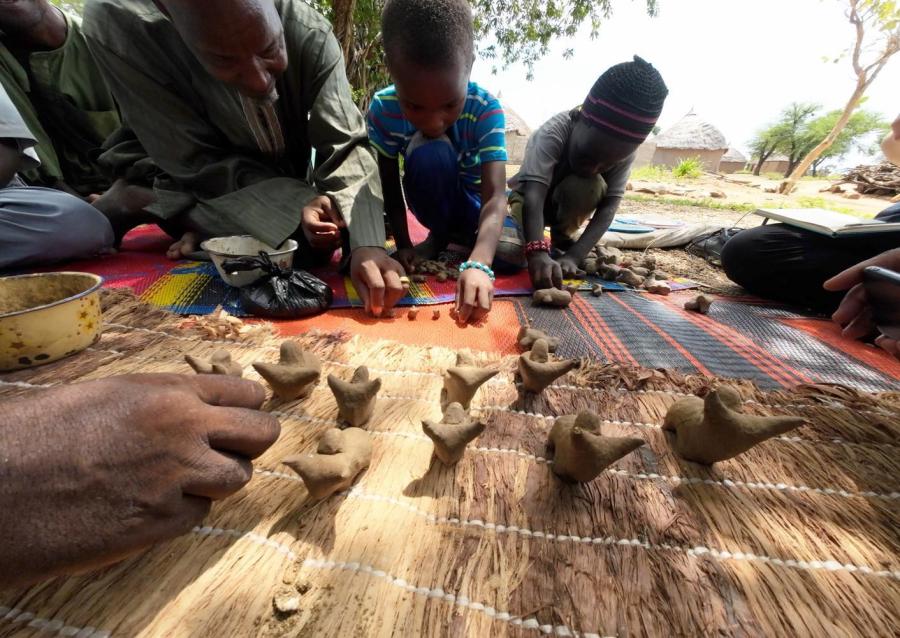Thanks to all who wrote letters to the World Bank, urging it to stop financing industrial logging in the Congo, the world's second-largest rainforest. Our letters demanded that the Bank carry out consultations with indigenous "Pygmy" communities throughout the vast rainforest region, and honor their needs and rights regarding any logging plan.
Under pressure, the Bank's Inspection Panel undertook an investigation of the Bank's policies and practices in the Congo. The Panel's report, just released, finds the Bank in violation of many of its own policies and standards.
The gap between the Bank's rhetoric and its actual practices must be closed. Its embarrassment over the findings of the Inspection Panel must be channeled into concrete changes on the ground -- in the Congo and elsewhere. Global Response will keep up the pressure on the Bank until we see social and environmental responsibility in deeds, not just in words.
PRESS RELEASE
4th October 2007
Congo’s Pygmies vindicated as official watchdog condemns World Bank’s role in Africa’s great rainforest
An unreleased report of the World Bank Inspection Panel obtained today by the Rainforest Foundation shows that the World Bank has committed grave errors in its projects in the rainforests of the Democratic Republic of Congo, which are the second largest on Earth after the Amazon [1]. The Panel’s investigation was undertaken after a formal complaint was submitted by a number of organisation’s working with Congo’s indigenous Pygmy people, who expressed their concern about the impact of Bank-funded activities in the forests which they inhabit [2]. An area of rainforest the size of France is at risk.
The report finds that two projects funded by the Bank since 2002 would have promoted massive industrial exploitation of Congo’s rainforests for timber production, potentially turning the country into ‘Africa’s premier timber producer’. However, the Inspection Panel also finds that there was ‘inadequate consideration of the many important socio-economic and environmental issues of forest us’ at the time that the Bank projects were prepared and started; that the Bank had not even identified the fact that Congo’s forests were inhabited by indigenous people, and had only given ‘limited attention’ to the fact that some 40 million other people (mostly subsistence farmers) also depend on Congo’s forests for their survival. As well as threatening the environment, the projects would also probably not serve to help alleviate poverty; the Panel has found that the Bank misled the Congolese government into believing that the revenues from logging its rainforests would be much higher than were likely in reality.
Most damningly for the Bank, the Panel has found that Bank staff broke many of the agency’s own internal ‘safeguard’ policies, which are designed to protect the environment, natural habitats, and the rights of people living in the areas affected by Bank projects. Bank staff ‘downgraded’ projects to lower levels of potential environmental risk, thus reducing the level of environmental assessment required, and then anyway failed to carry out environmental and social impacts before the projects started.
The Panel also finds that, whilst the Bank has repeatedly claimed that it is helping to bring Congo’s existing and mostly illegal logging operations under control, especially by reviewing the legality of all the existing 150 or so logging companies, there had been serious flaws in this process, with inadequate management of it by the Bank. The fate of around 15 million hectares of rainforest (about the size of England), some of it inhabited by Pygmies, could be determined by this flawed ‘review’ of logging concessions.
Simon Counsell, Director of the Rainforest Foundation, said;
‘The Panel’s report is a major victory for the ‘Pygmy’ peoples of the Congo whose rights and livelihoods would be seriously harmed by inappropriate development of the country’s rainforests. We are now calling on governments to put pressure on the World Bank Board to realise the gravity of the report and ddemand immediate action to safeguard the Congo forests and the 40 million people depending on them.’
Notes to editors
[1] The report results from a year-long investigation by the Panel, which serves as an official but independent ‘watchdog’ over the activities of the Bank, the world’s largest development funding agency. The Panel’s report on the Congolese rainforests would probably be made publicly available at the end of October.
[2] The Request for Inspection submitted by 12 Congolese activists can be found on the Inspection Panel website: http://siteresources.worldbank.org/ EXTINSPECTIONPANEL/Resources/RequestforInspectionEnglish.pdf.
For further information contact:
Simon Counsell, the Rainforest Foundation UK
T- 020 7485 0193 M- 07941 899 579 E: simonc@rainforestuk.com
Cath Long, Rainforest Foundation UK Programme Director
T- 020 7485 0193 M – 07932 635 798 E – cathl@rainforestuk.com


